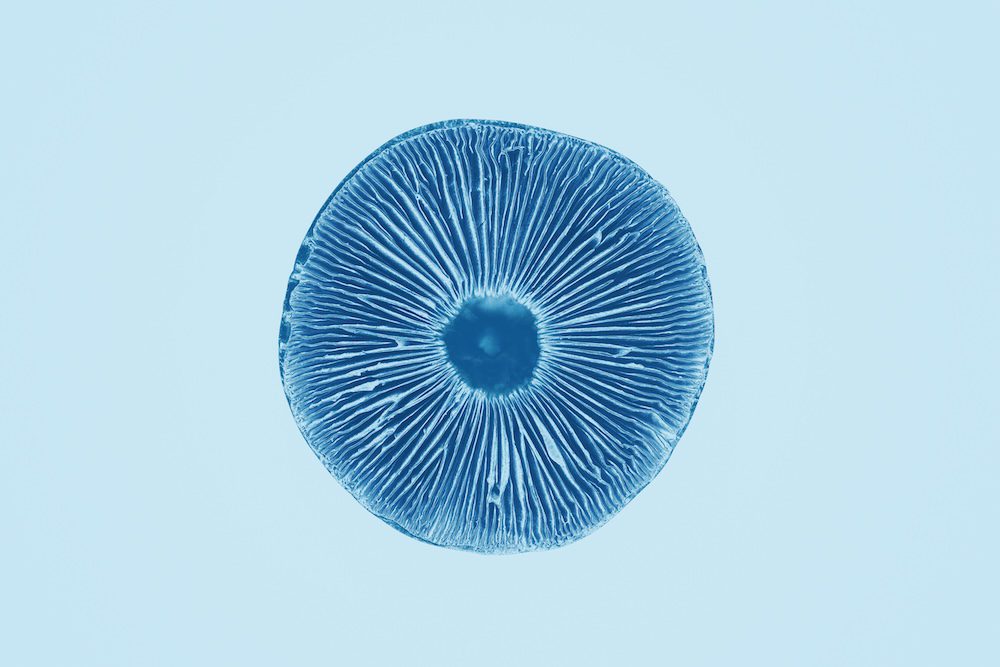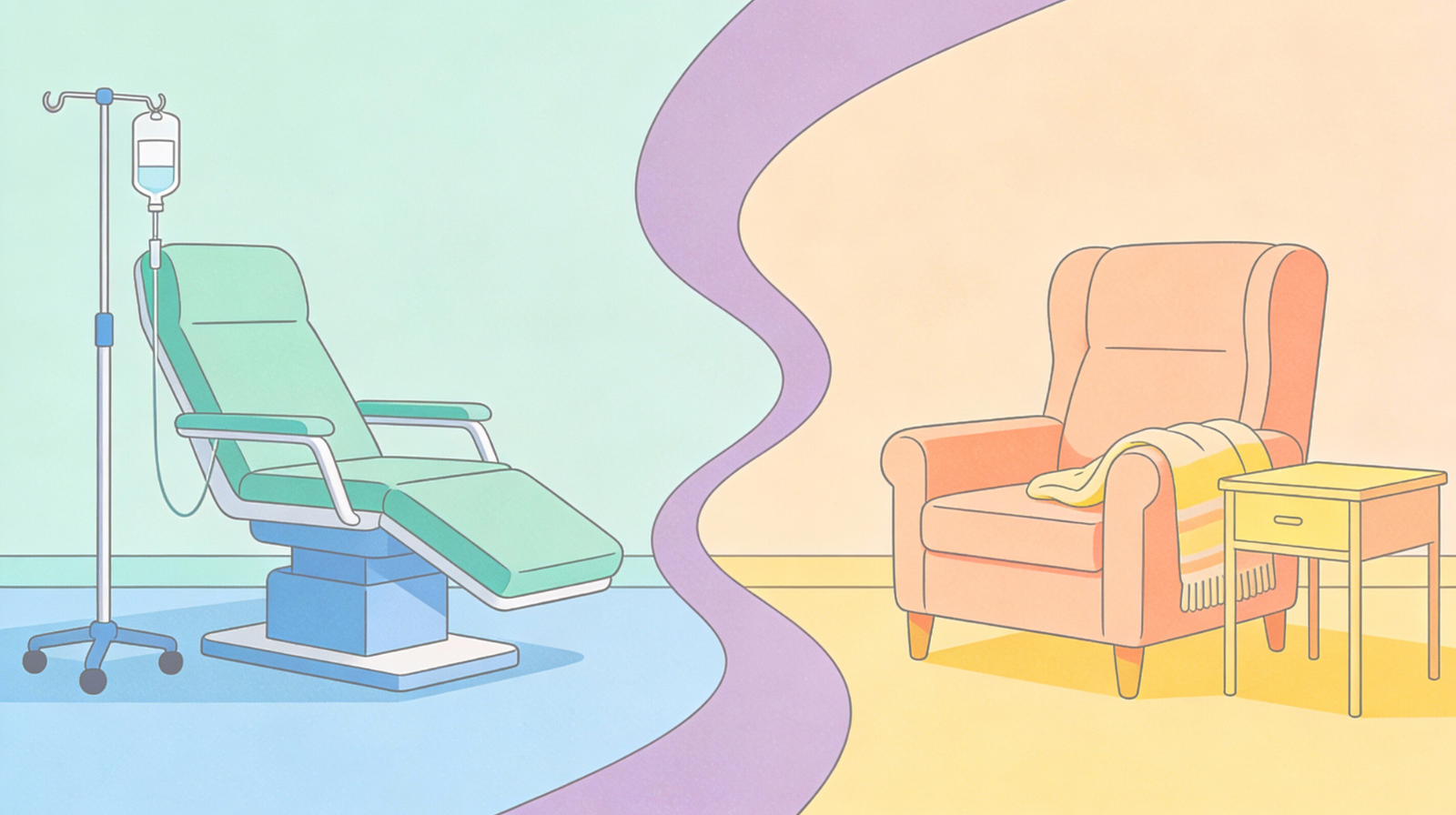
Incorporating Microdosing in Preparation & Integration of Wellness Retreat Experiences

Disclaimer: Beckley Retreats provides information on microdosing for educational purposes only. The legal status of microdosing varies by region, and it is the responsibility of the reader to be aware of and comply with the laws in their local jurisdiction. Beckley Retreats does not endorse or promote illegal activities, and we encourage all individuals to conduct their own research and seek legal advice if needed before engaging in any microdosing practices.
What is Microdosing?
Microdosing is the practice of consuming very small amounts of psychedelic substances, typically 1/5 to 1/20 of a recreational dose. The intention behind microdosing is to improve mental and physical health, cognitive function, and overall well-being without inducing a full-blown psychedelic experience. This practice has gained significant popularity in recent years, particularly within the realms of mental health, creativity, and personal development, with many individuals reporting enhanced productivity and mood. Recent studies lend some support to these claims. For example, a study involving 953 psilocybin microdosers found that after one month, participants reported reduced symptoms of anxiety, depression, and stress. Similarly, other research highlights potential cognitive benefits, such as increased openness and creativity, though placebo effects remain a critical consideration. Despite these promising findings, the science behind microdosing remains in its infancy, with most studies relying on self-reported data and limited placebo controls. Historically, anti-drug policies such as the War on Drugs curtailed scientific research on psychedelics, but renewed interest is paving the way for more rigorous investigation. Notably, the roots of microdosing can be traced back to indigenous cultures that have long utilized psychedelics for spiritual and therapeutic purposes, reflecting a rich tradition of exploring altered states of consciousness for personal growth and well-being.
The Basics of Microdosing
One of the more commonly microdosed substances is psilocybin, the substance found in magic mushrooms, LSD (lysergic acid diethylamide), and, although less frequently, substances like mescaline or ayahuasca. The typical dosage for microdosing varies depending on the substance. For instance, a microdose of psilocybin might range from 0.1 to 0.3 grams of dried mushrooms, while a microdose of LSD could be around 10 to 20 micrograms.
Those who wish to explore psychedelic microdosing often do so on a schedule, with many individuals adhering to a regimen of dosing every few days. One popular approach is the “Fadiman protocol,” named after psychologist James Fadiman, who suggests taking a microdose on day one, then observing the effects on days two and three before repeating. This, too, can potentially illuminate the placebo effect of microdosing or similar activities for an individual. Moreover, adhering to this cyclical pattern of microdosing can allow individuals to assess how the microdose influences their mood, creativity differences, focus, symptoms related to anxiety and depression, and overall well-being without experiencing the hallucinogenic effects.
Microdosing Research: Scientific Studies and Evidence of Efficacy
When reading about the potential benefits and experiences of microdosing, many anecdotal accounts are available praising this practice. These reports are an important insight into the field of microdosing as much of the related research, as well as psychedelic research more broadly, is still in its infancy. That said, preliminary studies and a systematic review of microdosing appears to offer novel findings about psychedelic use in this manner.
A notable study on microdosing substances that was pubblished in 2021 in the journal Psychedelic Medicine explored the impact of microdosing on mental health. This research related to psychdelic drugs found that participants who microdosed reported lower levels of symptoms potentially related to depression and anxiety compared to those who did not, findings that are generally consistent with other anecdotal reports on microdosing. Additionally, another present study published in 2020 in media reports for the publication Frontiers in Psychology indicated that microdosing could lead to improved cognitive flexibility, suggesting that it may enhance the brain’s ability to adapt to new information and situations. Other studies related to frequent microdosing and other substances, an interest that has gained attention in this current psychedelic renaissance, have found their way into one form of international journal or another. These articles are important resources for reporting the positive effects and microdosing history of this psychedelic drug practice. Due acknowledgement and creative commons attribution should be given to those behind these studies, as article number filling this point of scientific inquiry continues to grow.
Despite these promising findings, researchers are still cautioning against drawing definitive conclusions until more rigorous, controlled studies are conducted. This is especially the case for those interested in learning more about the perceived outcomes between tiny doses of psychedelic drugs and symptoms related to treatment resistant depression. Future studies on psilocybin microdosing, both related to anxiety disorders, substance use disorders, and other depressive symptoms, still need to be carried out with informed consent. Appropriate credit should be given to the researchers carrying out scientific inquiries thus far, but nonetheless, additional systematic study of microdosing is still needed, especially those which feature clinical trials and are given increased research funding. The subjective nature of microdosing experiences and the variability in dosages and individual responses complicate the research landscape.
Microdosing—or the practice of taking very small, non-hallucinogenic doses of psychedelics—is becoming a popular approach to support both the preparation and integration of transformational retreat experiences. With microdosing, participants can begin their journey with psilocybin gently and intentionally, fostering familiarity and grounding before their retreat. Afterward, microdosing serves as a tool to stay connected to the retreat’s lessons, extending its benefits and promoting meaningful integration into daily life. This approach can enable individuals to deepen their experience and align it with personal growth goals, making it a valuable addition to a retreat journey. As one retreat participant reflects following a psychedelic retreat they attended:
“I came across a study published in Scientific Reports found that individuals who microdosed reported reduced symptoms of depression and anxiety along with improved mental flexibility. It also reported that Microdosing is associated with improved focus, problem-solving skills, and an increase in divergent thinking (a component of creativity).
My psilocybin mushroom retreat is something I’ve been wanting to do for a long time. I’ve read a lot about it, and know that the more I prepare and nurture the experience – before and after the ceremony – the more likely I’ll be ready to receive and process the wisdom of the medicine. Microdosing, for me, is a way of properly preparing and integrating my retreat experience. It helps me to sustain my transformation long after the retreat and integration program have completed.”
Recently, more people have begun using microdosing psychedelics both as preparation for, and integration of, their ceremonial journeys. Intentional microdosing, before and after a retreat, can create a supportive framework—a container to hold and extend your experience—especially when guided by a supportive community and experienced facilitator.
Laying the Foundation for Microdosing Psychedelics
Booking an psychedelic retreat is an exciting moment, signaling that your journey has already begun. For many, a psilocybin retreat ranks among the most meaningful experiences of their lives and it reflects a deep intention for personal growth. Preparation is essential to the retreat experience, and establishing an intentional microdosing practice—taking small, sub-perceptual doses of psilocybin—can be one of many ways to enhance your journey.
One way to begin cultivating your retreat experience can be by developing a relationship with the psilocybin in the months leading up to your retreat. It’s similar to preparing for a meditation retreat: If you start meditating now—even for just twenty minutes a day—you’ll be better prepared to sit in silence for ten days. Microdosing works in the same way—it can allow you to gently engage with psilocybin before embarking on a more immersive experience.
Microdosing over days and weeks has the potential to reveal insights and emotions, offering clues to help shape your intentions for a future retreat. In practicing microdosing, individuals may notice memories arising, symbols in dreams, or shifts in their emotions, which a trained retreat facilitator can help you reflect on. You may also develop familiarity with psilocybin, learning how it affects with your body, mind, and spirit. Each person experiences psilocybin differently—some feel it through the physical body, others through dreams or emotions, and some receive signs from nature.
A lack of preparation prior to a retreat can potentially lead to a more challenging experience and introduction to psilocybin. Unexamined emotions or heavy energies can arise during the retreat, which can at times feel overwhelming. This is why an intentional, science-backed preparation program which involves holistic wellbeing practices should feature in any psychedelic retreat experience you’re considering.
To supplement this, microdosing can be another way to begin exploring emotional patterns and responses before a retreat, allowing such feelings to surface and be addressed more gradually over time. Guided microdosing as preparation can help release fear and other heavy emotions—often experienced as grief or catharsis—lightening your energy before the retreat. Many people notice that, as their trust in the process deepens, anxiety around the upcoming journey may fade, replaced by curiosity and openness to what the experience will reveal.
By building a microdosing practice, you can enter your retreat feeling even more grounded and confident. This foundation allows your retreat experience to become an extension of your preparation. Nature responds to our intentions, and when we engage with psilocybin in a thoughtful, devoted way, the rewards often manifest in profound and unexpected ways.
Honoring & Integrating Your Journey
After the powerful experience of a ceremonial retreat, it can be challenging to return to everyday life. Once you’ve experienced profound insights and connection, transitioning back to daily tasks can feel like a jarring contrast. Make sure that any program you’re exploring includes a communal integration program and proven holistic wellbeing practices as part of the experience so you get the support you need as you look to sustain the transformation you have begun at the retreat when you get back to your everyday life.
Microdosing can serve as a valuable tool for integration—helping you stay connected to your practice, nurture the new neuroplasticity, and maintain your openness to the lessons learned.
We honor the gifts of the retreat by integrating its teachings into our daily lives, fostering greater presence, compassion, and intentionality in how we show up in the world. Microdosing, with its potential to promote neuroplasticity—the brain’s ability to reorganize and form new neural connections—may help extend the benefits of the retreat by reinforcing its lessons in our relationships, creativity, and leadership. While current research shows no significant difference between microdosing and placebo for small doses, it’s also possible that we lack sufficient data to capture its subtle effects. As with everything, microdosing is a deeply personal practice, and safely experimenting in alignment with your unique needs can help determine what works best for you.
As the Zen proverb says, “Before enlightenment, chop wood, carry water.” Microdosing is like chopping wood and carrying water—it’s the steady, intentional practice that helps us embody the wisdom we’ve gained. Over time, it becomes not just a practice we do, but part of who we are. By weaving these experiences into our daily lives, we create a lasting sense of peace and strength that carries us forward.
Benefits and Risks of Microdosing
Microdosing offers a range of potential benefits, including improved mood, heightened creativity, better concentration, increased productivity, and enhanced empathy. The benefits of microdosing can make daily tasks more manageable and enjoyable, contributing to overall well-being. However, the risks associated with microdosing are not yet fully understood, and future studies with clinical trials are still required to fully understand these substances, especially as they relate to mental illness and as tools for decreased anxiety. One potential risk with microdosing is the expectancy effect, where individuals feel better simply because they expect to. Additionally, the lack of regulation around a psychedelic substance that would be used for microdosing can make it challenging to determine the correct dosage, increasing the risk of taking too much. In short, these are powerful substances and there can be a significant difference in effect for individuals based on many factors, including mental health concerns. An overly large or full dose used when microdosing can lead to an alarming or traumatic experience, underscoring the need for caution and further research to establish safety and efficacy related to both frequent microdosing as well as future research into psychedelic drugs more broadly.
With this in mind, understanding the physical health benefits and other effects of microdosing are illuminating and educational. For example, advocates of microdosing report a variety of benefits, which can range from psychological to cognitive enhancements. Some of the most commonly cited effects include:
Improved Mood and Reduced Anxiety:
Many users have reported experiencing a boost in mood after microdosing, reduced feelings of anxiety, and an overall sense of well-being. This aligns with emerging research suggesting that psychedelics may positively affect serotonin receptors in the brain, potentially leading to enhanced mood and emotional resilience. Again, additional microdosing research into the effects of these substances on conditions such as depression compared to other medical or holistic tactics are still required to more fully understand the breadth and power of microdosing and psychedelic drugs.
Enhanced Creativity and Problem-Solving Skills:
Microdosing psychedelics has gained popularity among many artists, writers, and innovators who claim that the practice fosters heightened creativity and divergent thinking. Some anecdotal evidence suggests forms of physical health benefits, while other reports suggest that microdosing can facilitate new ideas and enhance problem-solving abilities, highlighting potential benefits related to more cognitive outcomes. Microdosing magic mushrooms is still a growing field, and those in the medical professional space will need to engage in future research to understand the placebo effects of microdosing, the power of full doses, and other important attributes of psilocybin mushrooms.
Increased Focus and Productivity:
Individuals often report improved concentration and productivity while microdosing. This can be particularly appealing in today’s fast-paced, distraction-laden work environments, where maintaining focus is often a challenge. Psilocybin mushrooms and their use are connected with opening new neural pathways in the brain, thereby potentially revealing new forms of idea generation which can ultimately be related to a sense of increased productivity. Once again, the research questions for how microdosing is connected to productivity are a vast area of interest in the scientific community.
Spiritual Insights and Personal Growth:
Some microdosers approach psychedelic drugs to seek deeper self-awareness and insights into their lives. The subtle effects of microdosing psychedelics may lead individuals to explore their thoughts, emotions, and behaviors in a new light, fostering personal development and introspection. What psychedelic microdosing looks like from person to person can vary, however, as will the effects of microdosing on one’s spiritual insights and personal growth—as is also the case with using a recreational dose or full dose of psychedelic drugs.
Preparing for a Transformational Retreat with Microdosing
Regardless of the path that brings you to considering joining a retreat that centers on a psychedelic experience, microdosing or otherwise, preparation before and integration following these retreat experiences are of the utmost importance. Preparing for an experience microdosing, whether recreationally or on a retreat, involves several crucial steps. First, thoroughly research the retreat center and the facilitators to ensure they are reputable and experienced in psychedelic therapy. Understanding the risks and benefits of microdosing is essential, as is preparing oneself mentally and emotionally for the experience. Consulting with a medical professional such as your doctor is particularly important if you have a history of mental illness or are taking medication. This step ensures that microdosing is safe for you and helps mitigate any potential risks. By taking these precautions, you can approach your retreat with confidence, knowing you are well-prepared for the journey ahead.
Mental Health Conditions and Microdosing
The use of microdosing to address mental health conditions, including depression, anxiety, and post-traumatic stress disorder (PTSD) is an area of particular interest in our current psychedelic renaissance. Although some individuals have reported improvements in their mental health related symptoms following microdosing, more research is required to determine the efficacy and safety for such a practice. Consulting with medical professionals is an important way to understand the potential risk associated with microdosing.
Beyond microdosing, studies increasingly suggest that psilocybin, which is the primary psychoactive component of psychedelic “magic mushrooms,” may prove to be a potential tool used to address depressive symptoms. One example of current scientific inquiry into this field includes studies on microdosing and bipolar disorder. In one 2022 study carried out by the British Association for Psychopharmacology, researchers found that one-third of respondents saw new or increasing symptoms related to bipolar disorder after psilocybin trips, including difficulty sleeping and anxiety. That said, the majority of respondents, including those who experienced some of these adverse effects, said psilocybin was more helpful than harmful. As this was a small case study, researchers concluded that the study’s findings primarily suggest opportunities for future research to better understand microdosing psilocybin as a tool connected to a mental health condition such as bipolar disorder, post traumatic stress disorder, and depression anxiety.
Psilocybin Mushroom Retreat Experience and Microdosing
Any well designed retreat experience typically involves a blend of psychedelic experiences, meditation, and other holistic practices with a carefully designed preparation and integration program. These retreats aim to provide a safe and supportive environment for individuals to further their self-understanding and wellbeing. The experience can be profoundly transformative, offering deep insights and emotional healing. However, it’s essential to approach the retreat with an open mind and a willingness to confront your fears and emotions. That’s why, at Beckley Retreats, our team of world-class facilitators are there to support both your preparation and integration journeys. 88% of our retreat participants reports this to be the most or one of the most life-changing experiences of their lives. By honoring the protocol pre- and post-retreat, you can find ways to harness your retreat experience into lasting personal change. In doing so, you can fully embrace the transformative potential of the retreat and integrate its lessons into your daily life. Incorporating microdosing is a personal choice and one that should be made in the context of what is legal and safe within your specific region.
If you want to learn more, Kayse Gehret, Founder at Microdosing For Healing is a microdosing coach, who is offering the Beckley Retreats community complimentary access to an engaging and info-rich 80-minute video on Microdosing for Creativity, Healing & Personal Discovery!
Disclaimer: Kayse is not part of Beckley Retreats and it is your responsibility to be aware of and comply with the laws of your local jurisdiction. Beckley Retreats does not endorse or promote illegal activities, and we encourage all individuals to conduct their own research and seek legal advice if needed before engaging in any microdosing practices.


